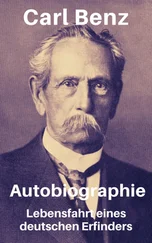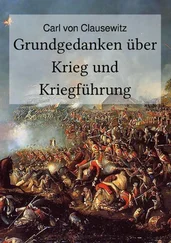Now, if it is to get safely through this perpetual conflict with the unexpected, two qualities are indispensable: in the first place an intellect which, even in the midst of this intense obscurity, is not without some traces of inner light, which lead to the truth, and then the courage to follow this faint light. The first is figuratively expressed by the French phrase coup d’œil . The other is resolution . As the battle is the feature in War to which attention was originally chiefly directed, and as time and space are important elements in it, more particularly when cavalry with their rapid decisions were the chief arm, the idea of rapid and correct decision related in the first instance to the estimation of these two elements, and to denote the idea an expression was adopted which actually only points to a correct judgment by eye. Many teachers of the Art of War then gave this limited signification as the definition of coup d’œil . But it is undeniable that all able decisions formed in the moment of action soon came to be understood by the expression, as, for instance, the hitting upon the right point of attack, &c. It is, therefore, not only the physical, but more frequently the mental eye which is meant in coup d’œil . Naturally, the expression, like the thing, is always more in its place in the field of tactics: still, it must not be wanting in strategy, inasmuch as in it rapid decisions are often necessary. If we strip this conception of that which the expression has given it of the over-figurative and restricted, then it amounts simply to the rapid discovery of a truth which to the ordinary mind is either not visible at all or only becomes so after long examination and reflection.
Resolution is an act of courage in single instances, and if it becomes a characteristic trait, it is a habit of the mind. But here we do not mean courage in face of bodily danger, but in face of responsibility, therefore, to a certain extent against moral danger. This has been often called courage d’esprit , on the ground that it springs from the understanding; nevertheless, it is no act of the understanding on that account; it is an act of feeling. Mere intelligence is still not courage, for we often see the cleverest people devoid of resolution. The mind must, therefore, first awaken the feeling of courage, and then be guided and supported by it, because in momentary emergencies the man is swayed more by his feelings than his thoughts.
We have assigned to resolution the office of removing the torments of doubt, and the dangers of delay, when there are no sufficient motives for guidance. Through the unscrupulous use of language which is prevalent, this term is often applied to the mere propensity to daring, to bravery, boldness, or temerity. But, when there are sufficient motives in the man, let them be objective or subjective, true or false, we have no right to speak of his resolution; for, when we do so, we put ourselves in his place, and we throw into the scale doubts which did not exist with him.
Here there is no question of anything but of strength and weakness. We are not pedantic enough to dispute with the use of language about this little misapplication, our observation is only intended to remove wrong objections.
This resolution now, which overcomes the state of doubting, can only be called forth by the intellect, and, in fact, by a peculiar tendency of the same. We maintain that the mere union of a superior understanding and the necessary feelings are not sufficient to make up resolution. There are persons who possess the keenest perception for the most difficult problems, who are also not fearful of responsibility, and yet in cases of difficulty cannot come to a resolution. Their courage and their sagacity operate independently of each other, do not give each other a hand, and on that account do not produce resolution as a result. The forerunner of resolution is an act of the mind making evident the necessity of venturing, and thus influencing the will. This quite peculiar direction of the mind, which conquers every other fear in man by the fear of wavering or doubting, is what makes up resolution in strong minds; therefore, in our opinion, men who have little intelligence can never be resolute. They may act without hesitation under perplexing circumstances, but then they act without reflection. Now, of course, when a man acts without reflection he cannot be at variance with himself by doubts, and such a mode of action may now and then lead to the right point; but we say now as before, it is the average result which indicates the existence of military genius. Should our assertion appear extraordinary to any one, because he knows many a resolute hussar officer who is no deep thinker, we must remind him that the question here is about a peculiar direction of the mind, and not about great thinking powers.
We believe, therefore, that resolution is indebted to a special direction of the mind for its existence, a direction which belongs to a strong head rather than to a brilliant one. In corroboration of this genealogy of resolution we may add that there have been many instances of men who have shown the greatest resolution in an inferior rank, and have lost it in a higher position. While, on the one hand, they are obliged to resolve, on the other they see the dangers of a wrong decision, and as they are surrounded with things new to them, their understanding loses its original force, and they become only the more timid the more they become aware of the danger of the irresolution into which they have fallen, and the more they have formerly been in the habit of acting on the spur of the moment.
From the coup d’œil and resolution we are naturally to speak of its kindred quality, presence of mind , which in a region of the unexpected like War must act a great part, for it is indeed nothing but a great conquest over the unexpected. As we admire presence of mind in a pithy answer to anything said unexpectedly, so we admire it in a ready expedient on sudden danger. Neither the answer nor the expedient need be in themselves extraordinary, if they only hit the point; for that which as the result of mature reflection would be nothing unusual, therefore insignificant in its impression on us, may as an instantaneous act of the mind produce a pleasing impression. The expression “presence of mind” certainly denotes very fitly the readiness and rapidity of the help rendered by the mind.
Whether this noble quality of a man is to be ascribed more to the peculiarity of his mind or to the equanimity of his feelings, depends on the nature of the case, although neither of the two can be entirely wanting. A telling repartee bespeaks rather a ready wit, a ready expedient on sudden danger implies more particularly a well-balanced mind.
If we take a general view of the four elements composing the atmosphere in which War moves, of danger, physical effort, uncertainty , and chance , it is easy to conceive that a great force of mind and understanding is requisite to be able to make way with safety and success amongst such opposing elements, a force which, according to the different modifications arising out of circumstances, we find termed by military writers and annalists as energy, firmness, staunchness, strength of mind and character . All these manifestations of the heroic nature might be regarded as one and the same power of volition, modified according to circumstances; but nearly related as these things are to each other, still they are not one and the same, and it is desirable for us to distinguish here a little more closely at least the action of the powers of the soul in relation to them.
In the first place, to make the conception clear, it is essential to observe that the weight, burden, resistance, or whatever it may be called, by which that force of the soul in the General is brought to light, is only in a very small measure the enemy’s activity, the enemy’s resistance, the enemy’s action directly. The enemy’s activity only affects the General directly in the first place in relation to his person, without disturbing his action as Commander. If the enemy, instead of two hours, resists for four, the Commander instead of two hours is four hours in danger; this is a quantity which plainly diminishes the higher the rank of the Commander. What is it for one in the post of Commander-in-Chief? It is nothing.
Читать дальше












